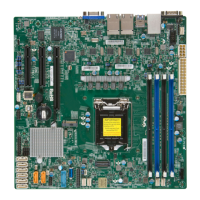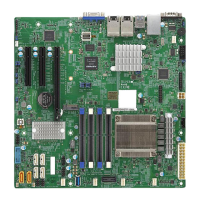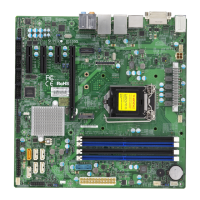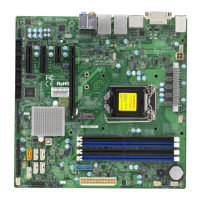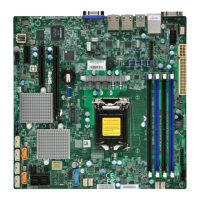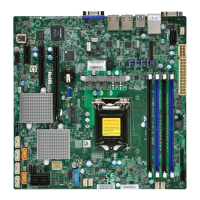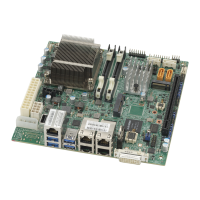16
X11SSH-CTF/TF User's Manual
Note: The table above is continued on the next page.
Motherboard Features
Peripheral Devices
• Two (2) USB 2.0 ports on the rear I/O panel (USB 0/1)
• Two (2) internal USB 2.0 headers with two (2) USB connections on the motherboard for front access (USB 2/3, 4/5)
• Two (2) USB 3.0 ports on the rear I/O panel (USB 6/7)
• One (1) internal USB 3.0 header with two (2) USB connections on the motherboard for front access (USB 9/10)
• One (1) Type-A USB 3.0 connector for front access (USB 8)
BIOS
• 128 Mb SPI AMI BIOS
®
SM Flash UEFI BIOS
• ACPI 4.0a, SMBIOS 2.7, BIOS rescue hot-key, Plug-and-Play (PnP), SPI dual/quad speed support, Riser card auto
detection support, RTC (Real TIme Clock) wakeup, Dual-Boot Block
Power Management
• Power button override mechanism
• Power-on mode for AC power recovery
• Wake-on-LAN
• Intel® Intelligent Power Node Manager 3.0 (available when the Supermicro Power Manager [SPM] is installed and a
special power supply is used. See the note on page 21.)
• Management Engine (ME)
• ACPI Power Mangement
System Health Monitoring
• Onboard voltage monitoring for +3.3V, +5V, +3.3V standby, +5V standby, +/-12V, VBAT, HT, Memory, PCH Temp., System
Temp., Memory Temp.
• CPU switch phase voltage regulator
• CPU Thermal Trip support
• Status monitor for speed control
• Status monitor for on/off control
• CPU Thermal Design Power (TDP) support of up to 80W (See Note 1 on next page.)
Fan Control
• Fan status monitoring via IPMI connections
• Dual cooling zone
• Low-noise fan speed control
• Pulse Width Modulation (PWM) fan control
System Management
• Trusted Platform Module (TPM) support
• PECI (Platform Environment Control Interface) 2.0 support
• UID (Unit Identication)/Remote UID
• System resource alert via SuperDoctor® 5
• SuperDoctor® 5, Watch Dog, NMI
• Chassis intrusion header and detection
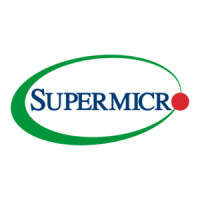
